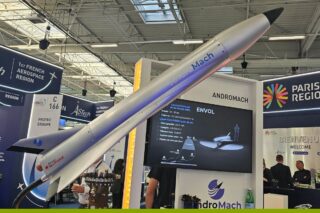The green transition and the talent shortage are arguably two of the biggest strategic challenges facing industry. Two very different challenges may well be related. Decarbonizing production chains could considerably improve the attractiveness of industrial companies to the most highly qualified young engineers.
By Olivier Helterlin, VP Sales – France Benelux and Switzerland & CEO PTC France
What if the solution to the talent shortage was an ecological one? The idea may seem incongruous, yet the climate crisis appears to play a role in the recruitment difficulties of some industries. At a time when the youngest and most highly educated members of the population are also among the most sensitive to ecological issues, companies committed to decarbonizing their business could well become more attractive to candidates.
Ecological Awareness Among the Most Educated
In April 2022, at the graduation ceremony of the prestigious engineering school AgroParisTech, eight young engineers called on their fellow students to “desert” companies involved in the “ongoing ecological devastation” and to “branch out” into more sustainable activities. This statement has led to a debate among young graduates but also among recruiters. Does this class of graduate agricultural engineers represent a more general trend among qualified candidates? Could it be that the ecological impact of industrial companies is becoming a key factor in their employer brand?
According to a report by the United Nations Development Programme (UNDP), in all countries in the world, the level of education is strongly linked to the conviction of climate emergency. On average, 58% of people with higher education support policies to fight the climate crisis, compared to 42% of people with a lower level of education.
This trend is likely to increase, as age is also decisive: 83% of French people under the age of 18 believe the climate crisis is an emergency, compared to 68% of those over 60. The youngest and most highly educated people are therefore statistically the most committed to the climate crisis. Young engineers calling for a “branching out” is therefore not surprising and represents a fundamental underlying trend.
RELATED OP-ED
Decarbonizing Industry: A Long-Term Strategic Choice
In many industrial sectors, reducing the carbon footprint of production processes is a considerable undertaking that is not necessarily profitable in the short term. But in the long term, many factors point in favor of rapid decarbonization.
First, the existence of technologies that combine environmental and economic performance, particularly those that improve the energy efficiency of infrastructures. Considerable upheaval in the fossil fuel markets, which has seen gas and oil prices explode in just a few months, potentially exaggerated by the scarcity of resources. But also the need to recruit young engineers in search of meaning and increasingly aware of the social and ecological impact of their profession.
In this context, companies that effectively reduce their carbon footprint gain a decisive competitive edge by ensuring the acquisition of strategic skills and talents who will work to further accelerate their ecological transition. A virtuous circle that will boost the growth of companies that set out on this path as soon as possible. To win the scramble for talent, it will therefore be necessary to take on another, even more, important challenge: the ecological transition of the industry.











